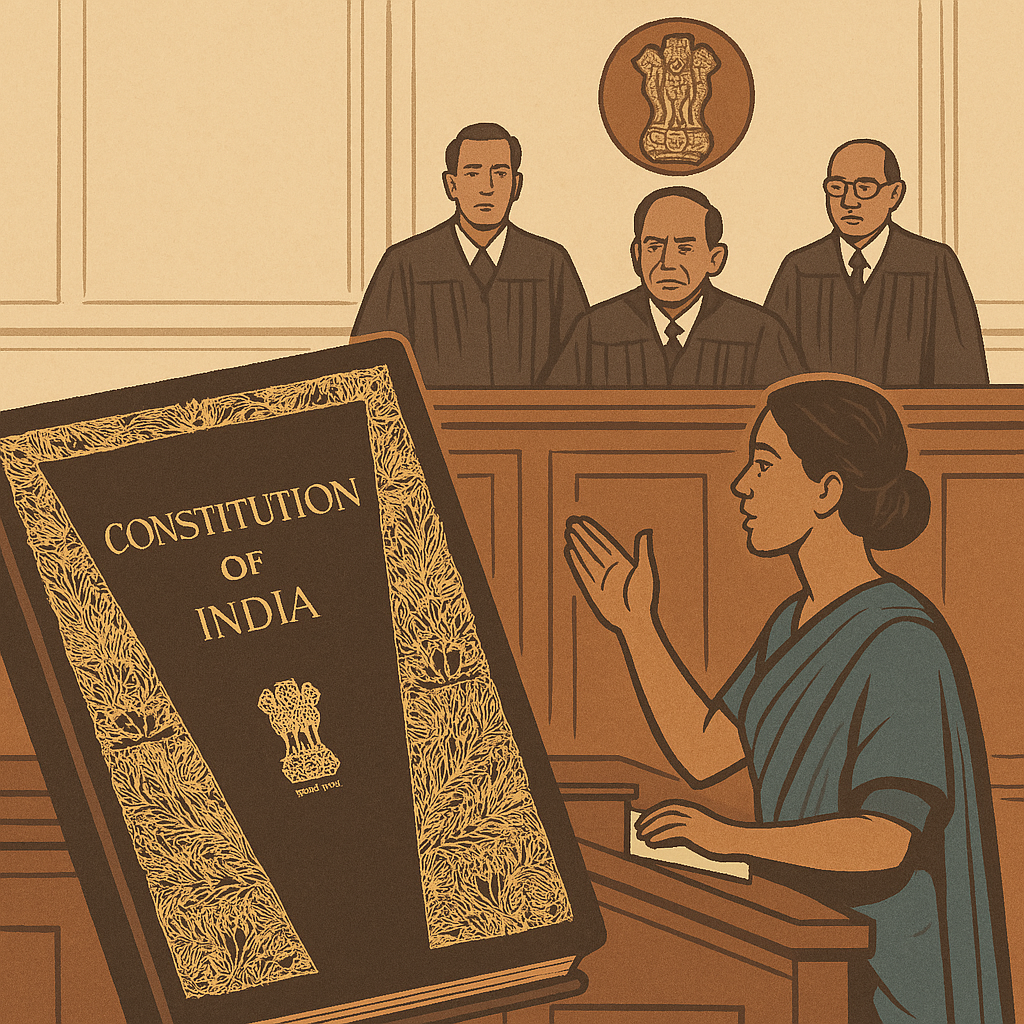The Doctrine of Constitutional Morality ensures that laws, governance, and court decisions are not only legal but also align with the values and principles enshrined in the Constitution, such as justice, dignity, liberty, and equality.
📚 Introduction
What if a law is technically valid but deeply unfair? What if a custom is popular but violates someone’s dignity?
This is where Constitutional Morality steps in. It’s not about personal beliefs or social customs—it’s about adhering to the ethical spirit of the Constitution. This doctrine guides the interpretation and implementation of laws to reflect justice, equality, and democratic values.
🧠 What Is Constitutional Morality?
In simple terms, Constitutional Morality means loyalty to the core principles of the Constitution. These include:
-
Rule of law
-
Equality
-
Liberty
-
Secularism
-
Justice
-
Respect for diversity and dignity
The idea is: even if a law is passed by Parliament or a custom has public support, it must still uphold constitutional values.
“What is morally wrong cannot be legally right if it violates the Constitution.”
🏛️ Historical Origins
The term was first used by Dr. B.R. Ambedkar, who said:
“Constitutional morality is not a natural sentiment. It has to be cultivated. We must learn to respect the law and the limits of power.”
Ambedkar believed that for democracy to survive in India, people must respect constitutional limits over personal or majority whims.
📜 Rise of the Doctrine in Indian Jurisprudence
Although the idea was discussed earlier, recent Supreme Court rulings brought it to the forefront:
⚖️ Landmark Cases Using Constitutional Morality
-
Navtej Singh Johar v. Union of India (2018)
-
Decriminalized homosexuality (struck down Section 377 IPC)
-
The Court said constitutional morality must prevail over social morality.
-
-
Indian Young Lawyers Association v. State of Kerala (2018) (Sabarimala case)
-
Allowed entry of women into the Sabarimala temple
-
Court ruled that patriarchal religious customs violate equality and dignity.
-
-
Joseph Shine v. Union of India (2018)
-
Decriminalized adultery
-
Held that laws treating women as property violate constitutional values.
-
-
Kesavananda Bharati v. State of Kerala (1973)
-
Though not using the exact phrase, the Basic Structure Doctrine is rooted in constitutional morality.
-
🤝 Why It Matters
-
Goes beyond legality to justice
Helps judges assess whether a law or action aligns with constitutional ethics. -
Protects minority and individual rights
Shields citizens from majoritarianism and outdated customs. -
Empowers judicial review
Allows courts to evaluate laws based on values, not just procedures.
❗ Critics Say…
Some argue that constitutional morality gives too much power to judges to interpret morality as they see fit, which might risk subjective or activist rulings.
However, courts have generally grounded the concept in constitutional texts and values, not personal opinions.
🧩 Conclusion
The Doctrine of Constitutional Morality is not a rigid rulebook—it’s a moral compass for Indian democracy. It ensures that every law, judgment, and government action respects the soul of the Constitution, especially the dignity of individuals and the idea of justice for all.
It reminds us: being constitutional isn’t just about obeying the law—it’s about honoring the values behind it.

